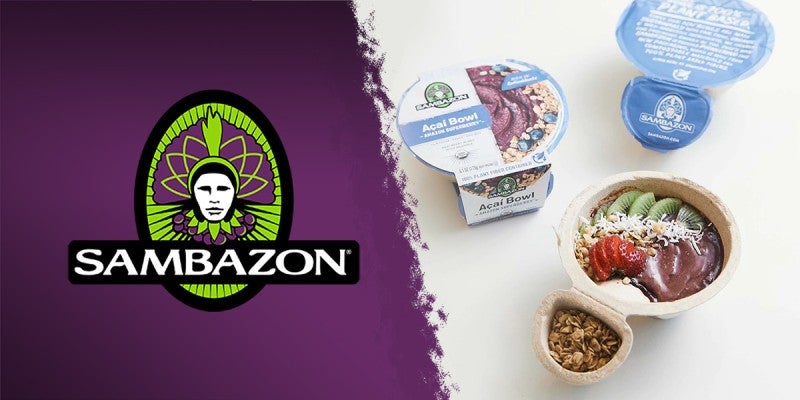
US-based material technology company Footprint has partnered with SAMBAZON, a supplier of certified fair-trade and organic açaí products, to develop a sustainable packaging solution.
As part of the multi-year agreement, the partners will use Footprint’s proprietary technology to develop plant-based fibre solutions for use in SAMBAZON’s ready-to-eat açaí bowls.

Discover B2B Marketing That Performs
Combine business intelligence and editorial excellence to reach engaged professionals across 36 leading media platforms.
The ready-to-eat açaí bowls are a frozen product claimed to have a 15-month shelf life.
Footprint founder and CEO Troy Swope said: “We are thrilled to bring our design and manufacturing innovation to support SAMBAZON’s Packaging ‘Eco-mmitment’ as they bring their certified fair trade and organic açaí to the freezer in a plastic-free, ready-to-eat bowl.
“We look forward to continuing to provide industry leaders like SAMBAZON the opportunity to transition away from single-use plastic with a plant-based fibre solution that is at price and performance-parity to plastic.”
Through this partnership, SAMBAZON will receive millions of units from Footprint to expand the national distribution of its açaí bowls.

US Tariffs are shifting - will you react or anticipate?
Don’t let policy changes catch you off guard. Stay proactive with real-time data and expert analysis.
By GlobalDataThe agreement is in line with SAMBAZON’s commitment to using plant-based and post-consumer recycled packaging for all its US retail products by 2025.
SAMBAZON CFO and COO Ricardo Perdigao said: “As a triple bottom line business, reducing our impact through packaging is a priority.
“Our partnership with Footprint has enabled us to deliver our fair trade and organic certified açaí to the world in packaging aligned with our sustainability goals, paving the way for a zero-waste future, and minimising our impact on the environment.”
Founded in 2014, Footprint designs, develops and manufactures biodegradable, compostable and recyclable products using plant-based fibre technology.
The company aims to provide solutions that can eliminate single-use and short-term-use plastics from the global food chain.
Last December, it announced plans to become a publicly listed company through a merger agreement with Gores Holdings VIII.



